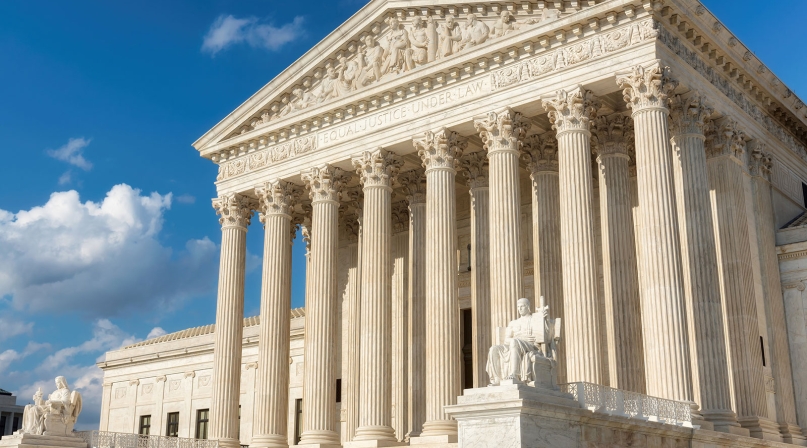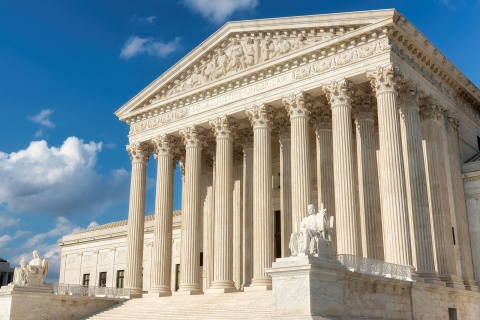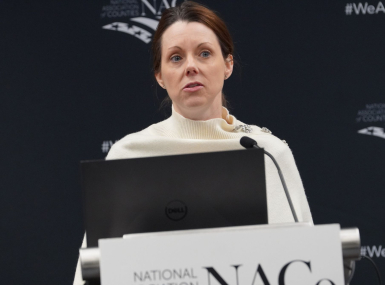U.S. Supreme Court ruling allows administration to begin enforcing DHS “public charge” rule
Author
Upcoming Events
Related News

Key Takeaways
On January 27, the U.S. Supreme Court issued an order that will allow the U.S. Department of Homeland Security (DHS) to begin enforcing the agency’s “public charge” rule. The rule widens the scope of programs and factors that federal immigration authorities may consider when determining whether an individual seeking permanent legal residency or a visa extension is likely to become a public charge — that is, primarily dependent on the federal government for subsistence.
Under current policy, an individual is deemed a public charge if they access government benefits that provide cash assistance — such as the Temporary Assistance for Needy Families (TANF) program or Supplemental Security Income (SSI) — or receive government-funded long-term institutional health care. The new rule would expand that, defining public charge as someone who relies on cash and non-cash benefits such as housing or food assistance for more than 12 months in a three-year period.
When the proposal was first announced in September 2018, NACo submitted comments expressing concerns, that if implemented, the public charge proposal would result in a decrease in the use of federal public benefits, thereby increasing usage of local services. Additionally, the change could also impose new administrative demands on counties already facing strict budget constraints. NACo also released an analysis of the rule that outlines key modifications to the “public charge” definition and how the rule may impact counties.
Originally slated to take effect in October 2019, federal judges in multiple states blocked the rule’s national implementation. The Supreme Court’s January 27 decision to lift this nationwide injunction allows the administration to begin enforcement of the rule starting February 24, 2020.
Despite the Supreme Court ruling, lower courts are expected to hear lawsuits on the public charge rules in the coming months. Once those lawsuits are settled, it is possible the Supreme Court will review the public charge issue again.
For more resources on immigration and the public charge rule, please see the following links:
- U.S. Department of Homeland Security: Inadmissibility on Public Charge Grounds
- NACo Comments on the Proposed Public Charge Rule
- NACo Regulatory Analysis of the DHS Proposed Rule on "Public Charge"
- NACo Immigration Reform Task Force Landing Page
- NACo Policy on Immigration

Attachments
Related News

National Association of Counties Launches Initiative to Strengthen County Human Services Systems
The National Association of Counties (NACo) announces the launch of the Transforming Human Services Initiative, a new effort to help counties modernize benefits administration, integrate service delivery systems and strengthen county capacity to fulfill our responsibility as America’s safety net for children and families.

Congress seeking ‘common-sense solutions’ to unmet mental health needs
Rep. Andrea Salinas (D-Ore.): “Right now, it is too difficult to access providers … and get mental health care in a facility that is the right size and also the appropriate acuity level to meet patients’ needs.”

Federal-level child welfare priorities center on supporting foster youth, families
Child welfare experts outlined current priorities at the federal level, including better supporting foster care youth who age out of the system and recruiting more foster parents, at NACo’s Human Services and Education Policy Steering Committee meeting.
